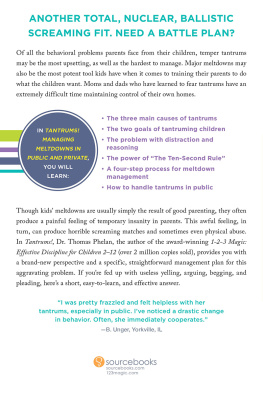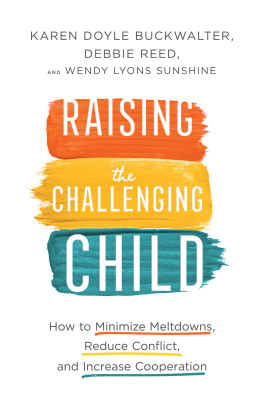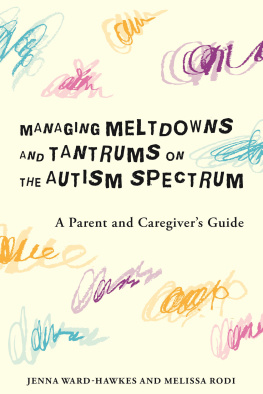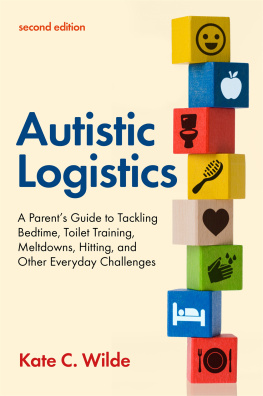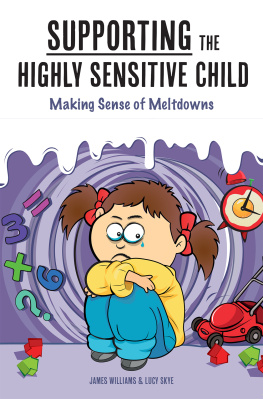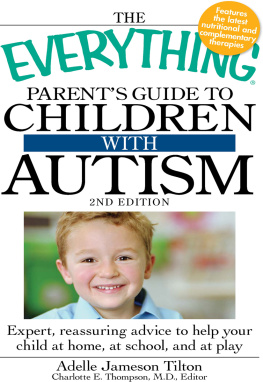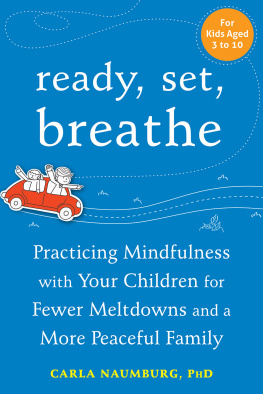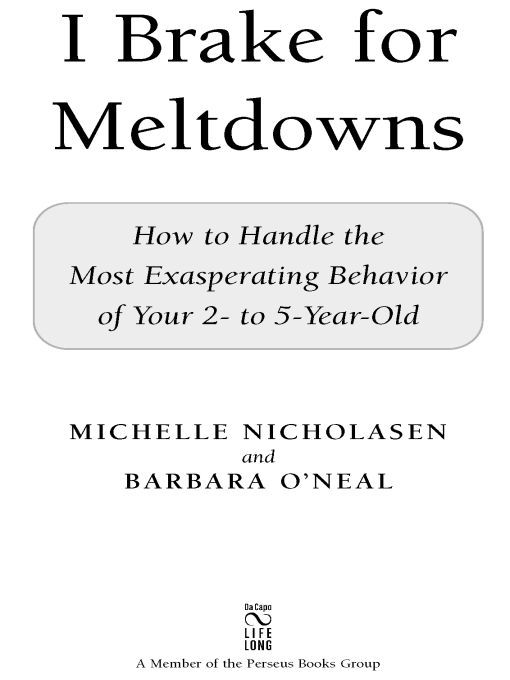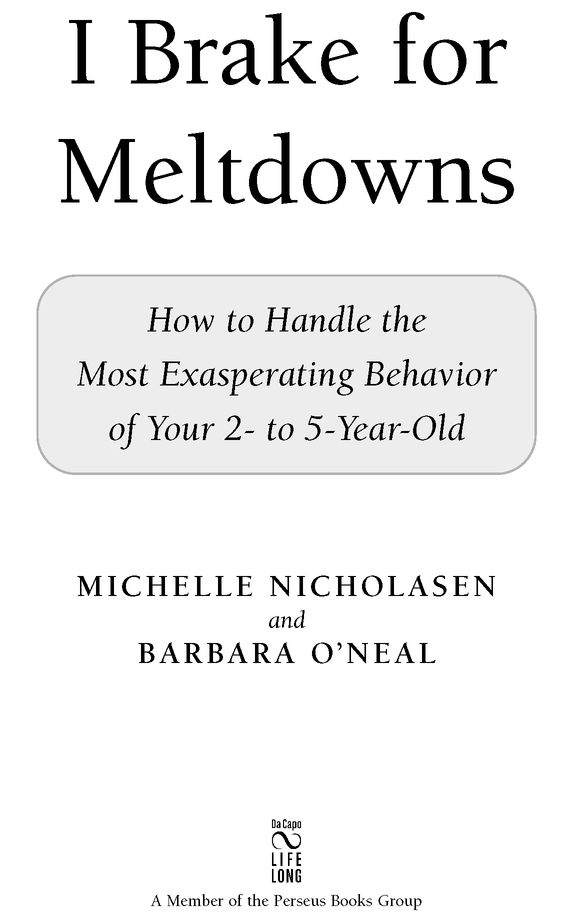Table of Contents
To my husband, Jim, who recruited me for the toughest job I ever loved.-M.N.
To my husband, Frank, and my family for their support and belief in my lifes work-B.O.
Introduction
Why are they screaming at me?
Young children seem programmed to drive us precariously close to the cliff. Impulsive, stubborn, and a tad psychotic, these little people have the ability to transform us into tricksters, fast-food waiters, goofballs, and pushovers. Our passion for them is matched by the level of exasperation they induce. We parents carry the universal balance scales on our shoulders: equal parts love and Ugh!
I think its accurate to say that small children sometimes behave as if they are, in fact, crazy. If adults ever acted like a two-and-a-half-year-old, they would be arrested. (Some adults do, and they are.) As parents, we often feel our toddlers insanity rubbing off on us. On the other hand, children are the only members of our society who can undress in public, pee on a tree at the park, and mutter to themselves feverishly without attracting much attention. And lets admit it; deep down we really envy their lack of inhibition. When we embrace the loveable wackiness of our little psychiatric patients, then we start to have funand forbearance.
It seems that cracking the nut of parenting young children involves two elusive skills: knowing when to be control freaksor notand being able to see the humor (or absurdity) in the situations that are momentarily out of our control. Understanding the differences among these subtleties is a process a parent never stops learning.
Todays parents have benefited enormously from the child development research of the past four decades. Our generation understands so much more about childrens emotional lives than past generations. Gone are the days when a child was forced to stay at the table until he finished eating. No longer do we see a child getting spanked over his mothers thighs. By now, you probably have internalized all the corrections that need to be made from your own childhood. Never spank. Dont dismiss your child. Acknowledge and talk about feelings. Dont break a childs spirit. Talk to children. Respect them. Be affectionate! We know that children need love, guidance, boundaries, autonomy, and strong bonds with their parents to form healthy selves. Thats light years away from what my mothers generation knew about children.
But heres the rub: psychologists and educators report that many parents today are so afraid of damaging their kids delicate psyches that they sometimes forget what they are supposed to be doing as parents. They get confused about what boundaries to set, and worry about harming their childs self-esteem when in fact they need to be firm. Who can blame them? Parenting is a confounding job. But somehow, we parents have to find a way to nurture our kids, let them explore, take risks, and be themselves, while at the same time consistently upholding healthy, reasonable boundaries.
This book will help you figure out when and how to draw those boundaries. It will help you scrutinize which battles are worth fighting and identify the many things you can just let go of. Use the Contents or Index to look up the behaviors that really get your goat. (You know what they are.) We give suggestions for what to say to your child, interventions you may or may not have considered, and ways to think about the situation if nothing seems to work. Because children have different temperaments, our suggestions will work for some and not others. We give you a variety of ideas for managing each tricky behavior so you can try out what feels right for you and your child. For example, one child who stubbornly refuses to put on her shoes might respond to silliness or a game to get her started. Another child might get motivated by a ticking timer. Each parent has his own strengths and vulnerabilities, too, when it comes to dealing with young behaviors. Then again, one childs struggle may not even be an issue for another. And so it goes.
We dont propose a new way of parenting or a novel method that you can apply to all your perplexing issues. Rather, what we do is share all the tricks we know about managing two- to five-year-old children in an effective, respectful way based on the behavior that is driving you bonkers!
The language we suggest you use with your little one is just thata suggestion. You should freely adapt it to your own style or diction. We sometimes offer two different versions of a response, one example for younger and one for slightly older children, but youngsters can vary greatly in their level of comprehension. You should use whichever example feels right. Some phrases you wont see are: good job, big girl/boy, and use your words. We find these to be devoid of meaning and more trouble than theyre worth. (But you said I was a big boy, so why cant I have gum?) Instead youll see: Thank you for helping me. You finished that puzzle by yourself! You are really growing up. Whoa, hold on. What do you want to tell me?
This guide was inspired by my childrens preschool, Arlington Childrens Center in Arlington, Massachusetts, where Educational Director Barbara ONeal takes phone calls every day from parents who are stuck. They have tried everything and need some quick advice. One child has come home from school with a stolen item, and her mom is not sure how to handle the situation. Another dad wonders why his son is having meltdowns right after school and what he can do about it. Still another is worried that her daughter is not making friends. Barbara sees her job as not only directing the schools curriculum and training teachers, but also being a family partner. She gives advice. Thats her job. And she always knows what to say to kids. Shes been doing this for thirty years.
I, on the other hand, have learned about kids in a trial-by-fire kind of way. Our children came to us fast and furious: five children in four years, with triplets in the middle. On the domestic front, my life can best be described as a military operation (and with luck, it will bring lifelong rewards). Five children with very different temperaments propelled my husband and me to try different approaches constantly, to weed out strategies that werent working only to introduce them again at later stages in development. While our son is so easygoing he can be talked into just about anything, one of our daughters is so intense that when she was small, we often watched helplessly as she kicked and scratched out her anger on the floor. Talking with Barbara, I saw that the approaches we use with our children at home are well aligned with the methods and spirit she brings to preschool.
Together we have put our strategies into this book as a tool for others who are managing the challenging toddler-and-beyond years. While we dont espouse a particular philosophy, our suggestions are in tune with the theory that children learn from the logical and natural consequences of their actions. Psychologist Rudolph Dreikurs first popularized this theory in the 1960s. The best way to understand how this learning works is to take the example of a child who refuses to put on his coat to go outside in the middle of winter. A parent can prod, coerce, and cajole, or offer logical explanations for why he ought to put on his coat. She can also threaten or bribe him. But the most effective way of handling the conflict is not to have an argument at all, but to let him go outside without a coat. He will soon learn that its cold outside and ask for a coat, which the parent has brought along. Obviously, this approach is not practical in all circumstanceslike when your daughter insists on driving the carbut it can be applied to a lot of mini-battles that spring up during the day.



